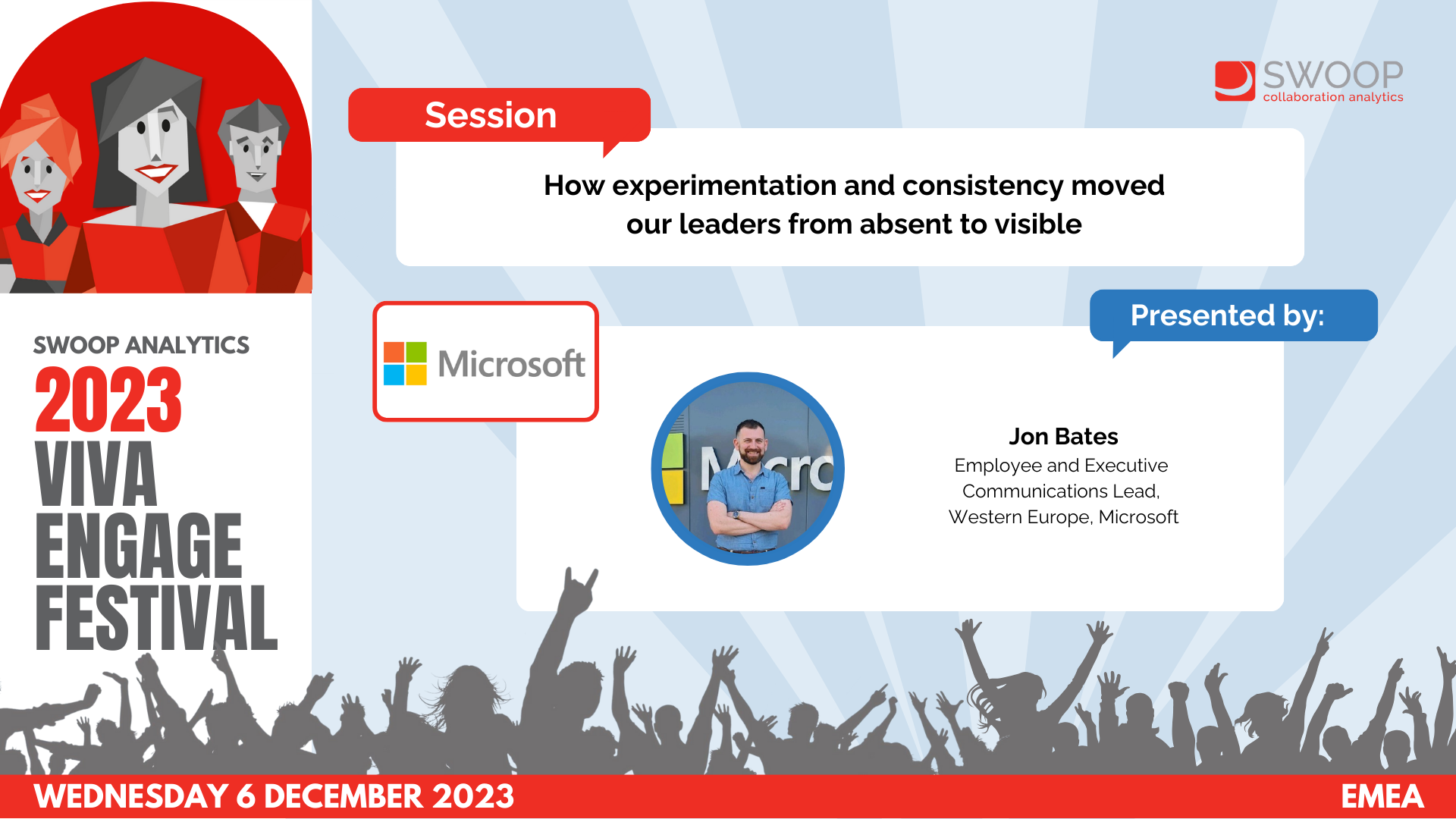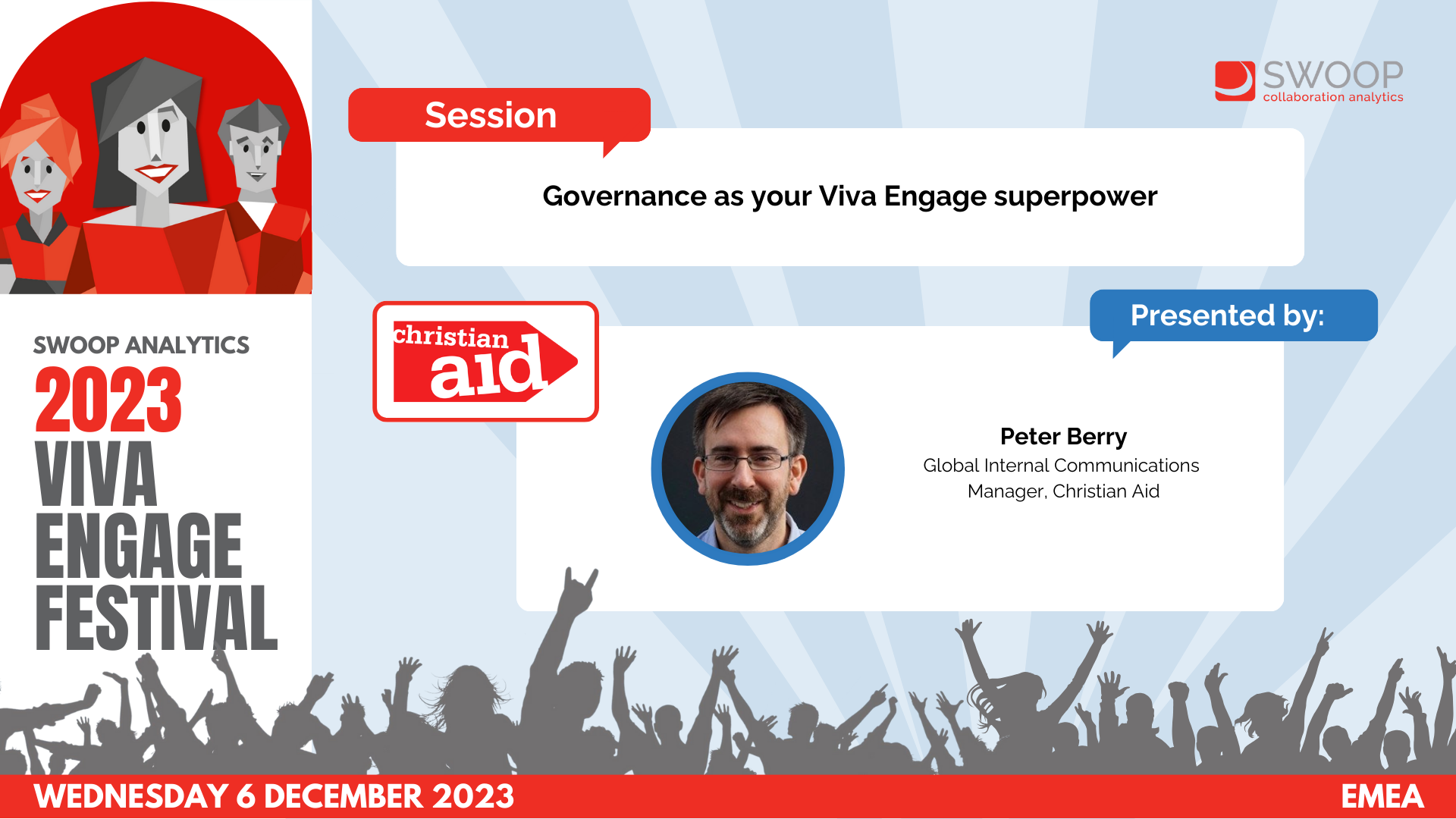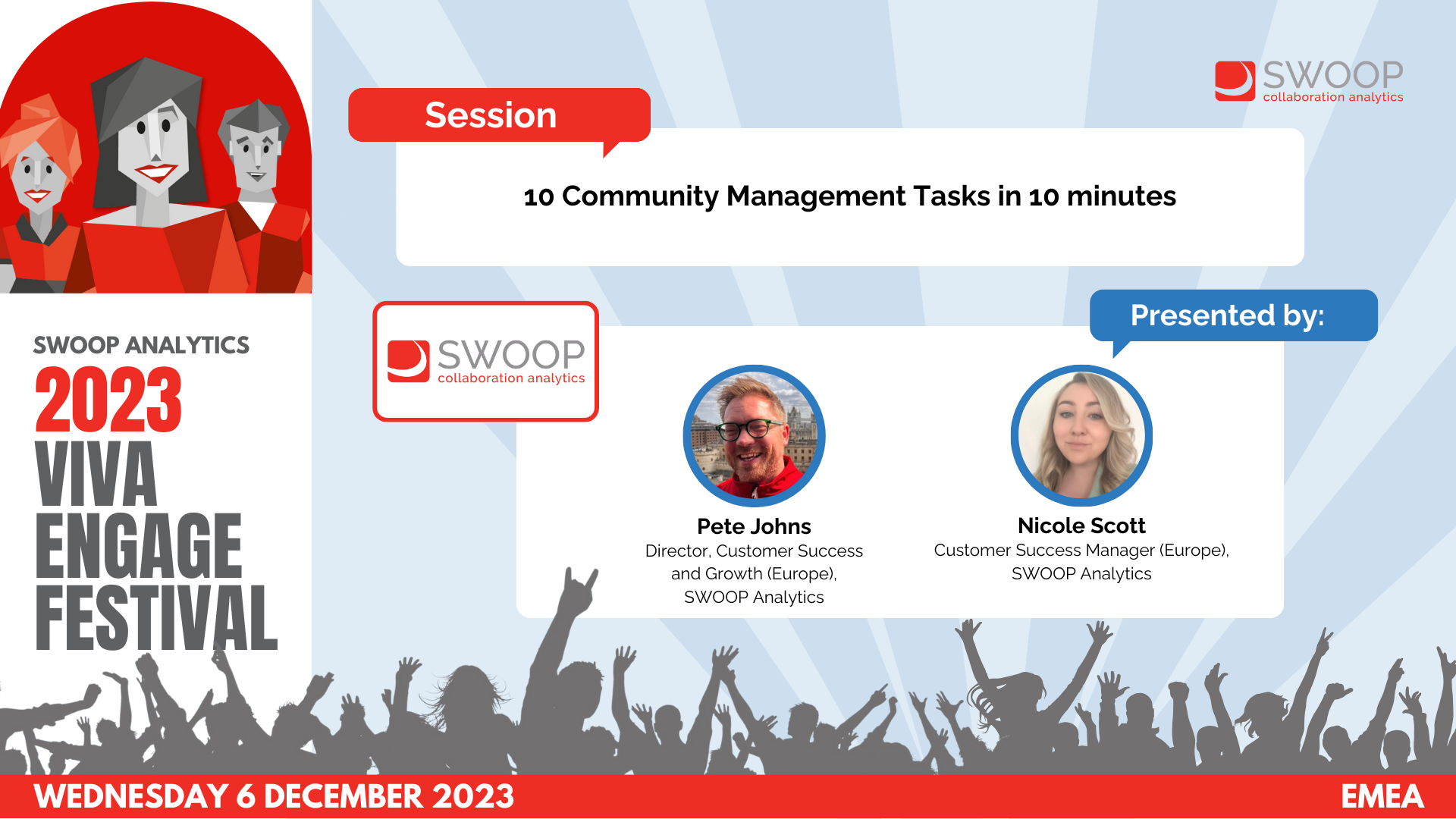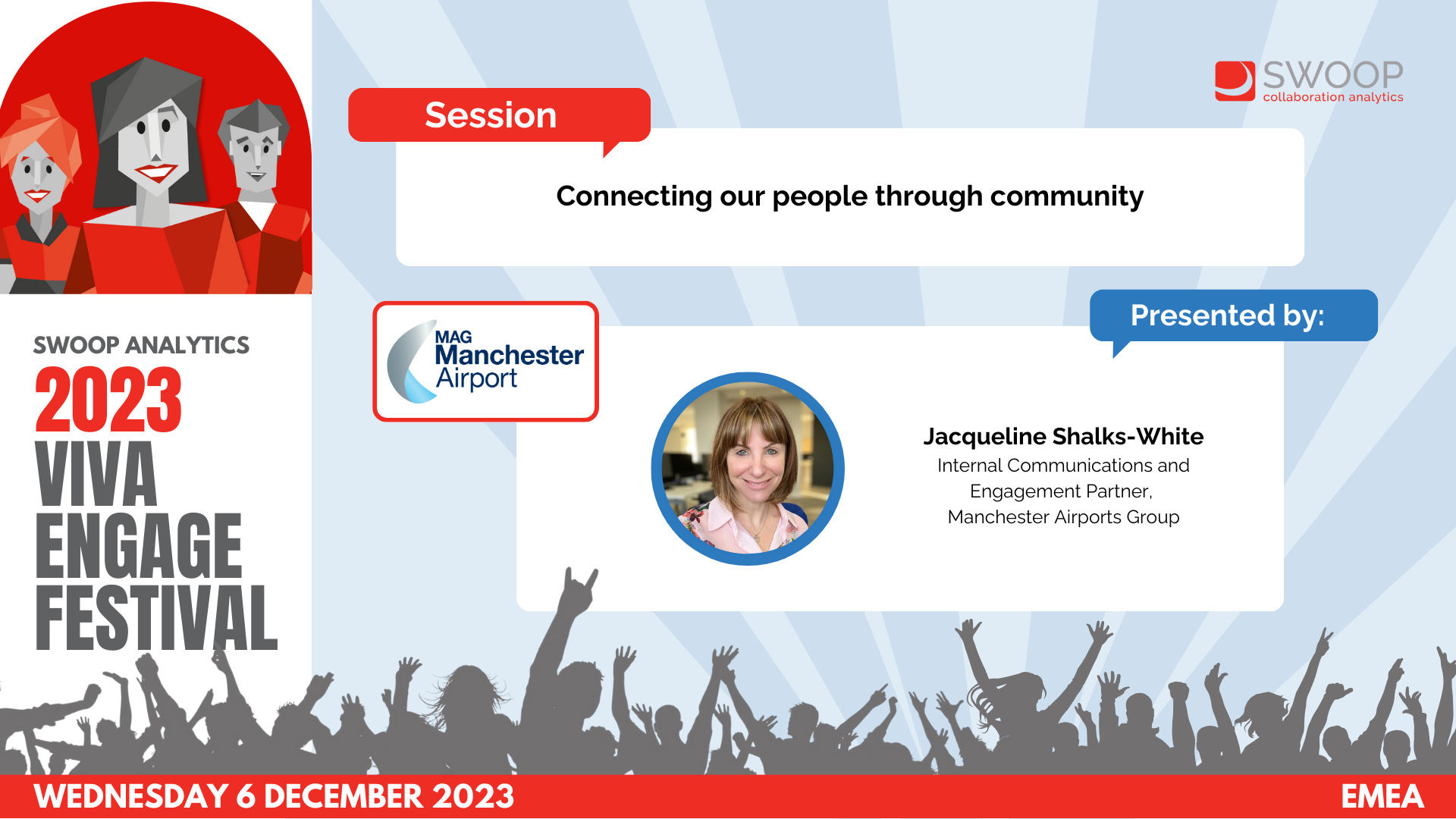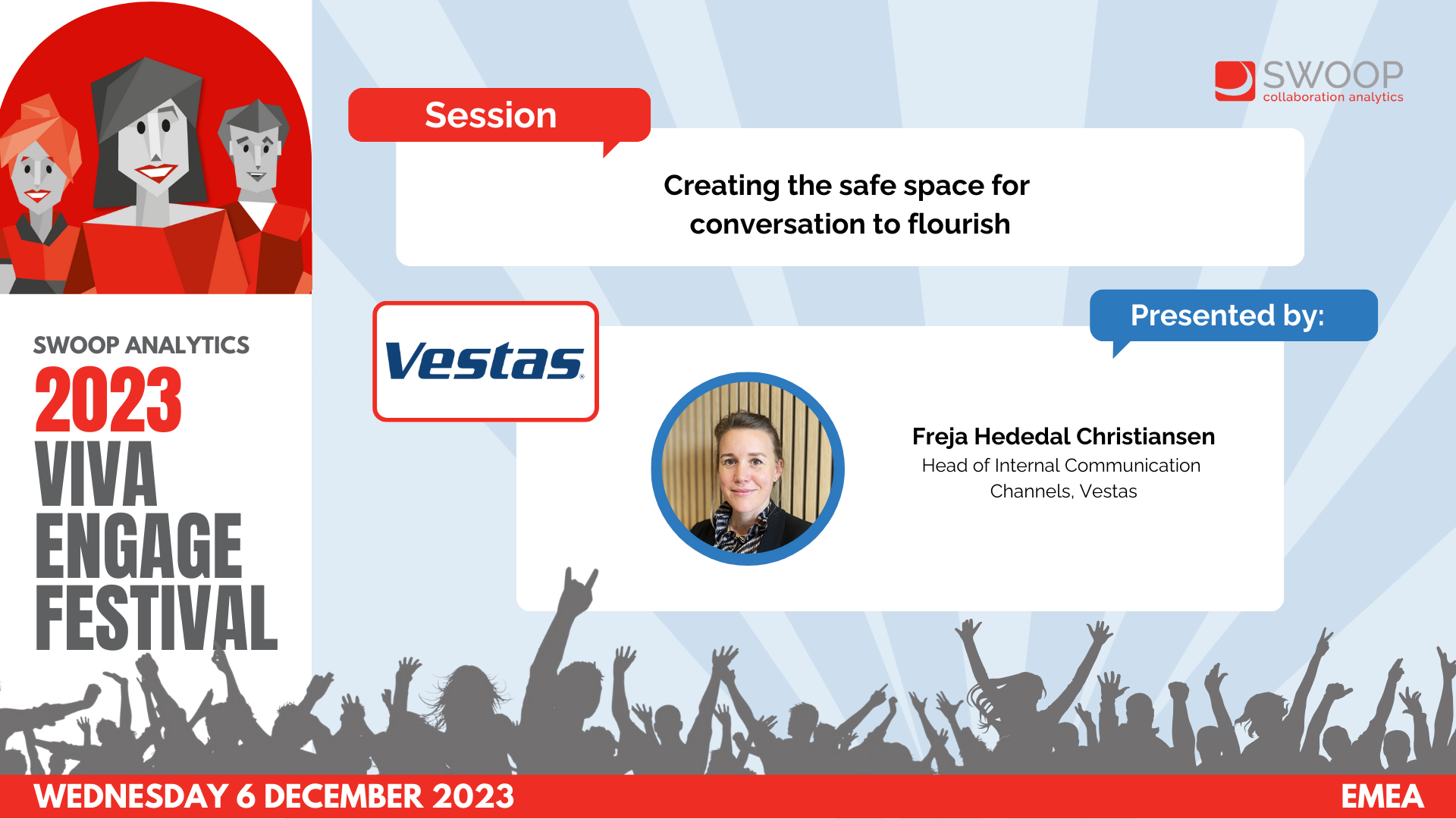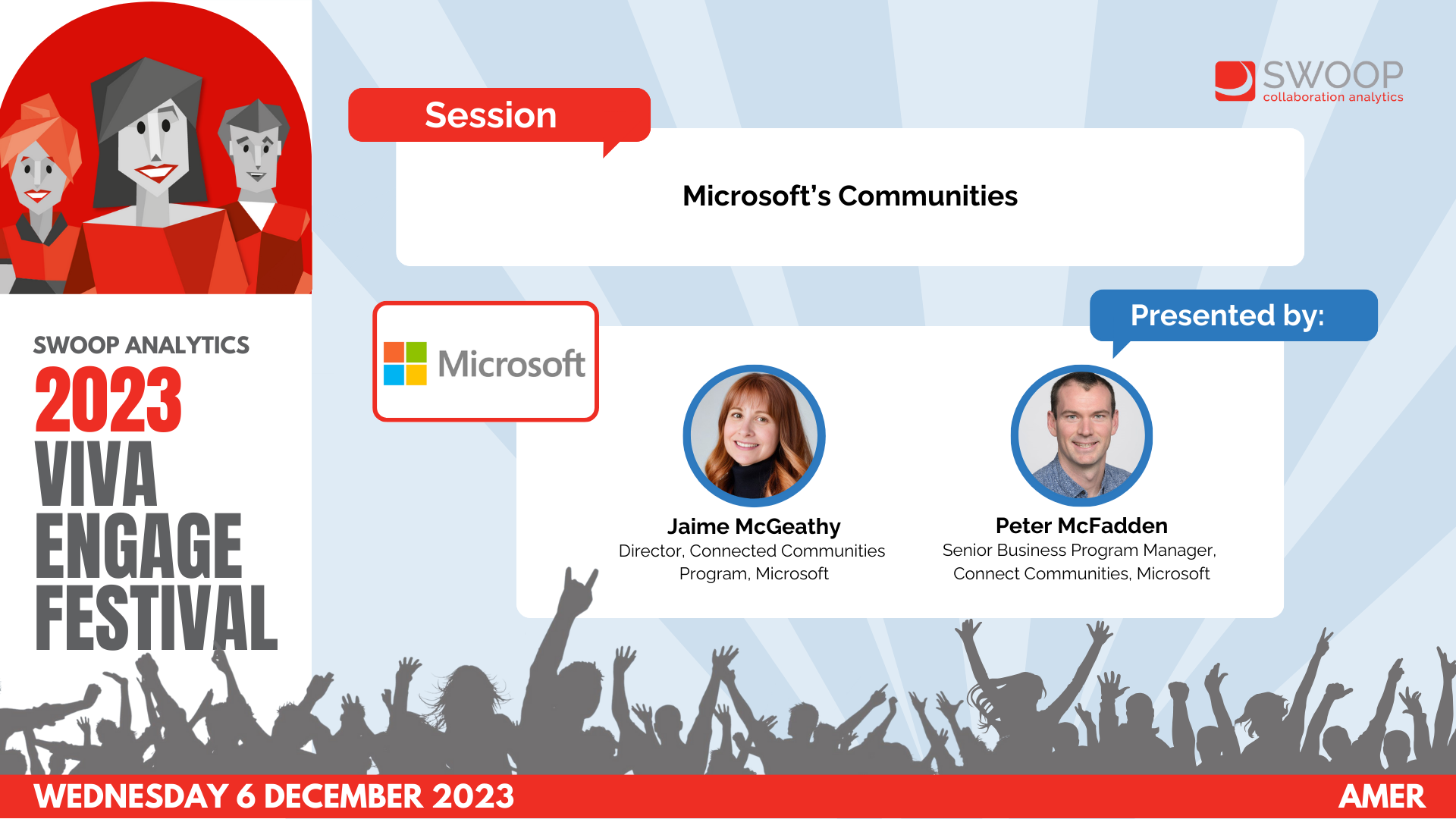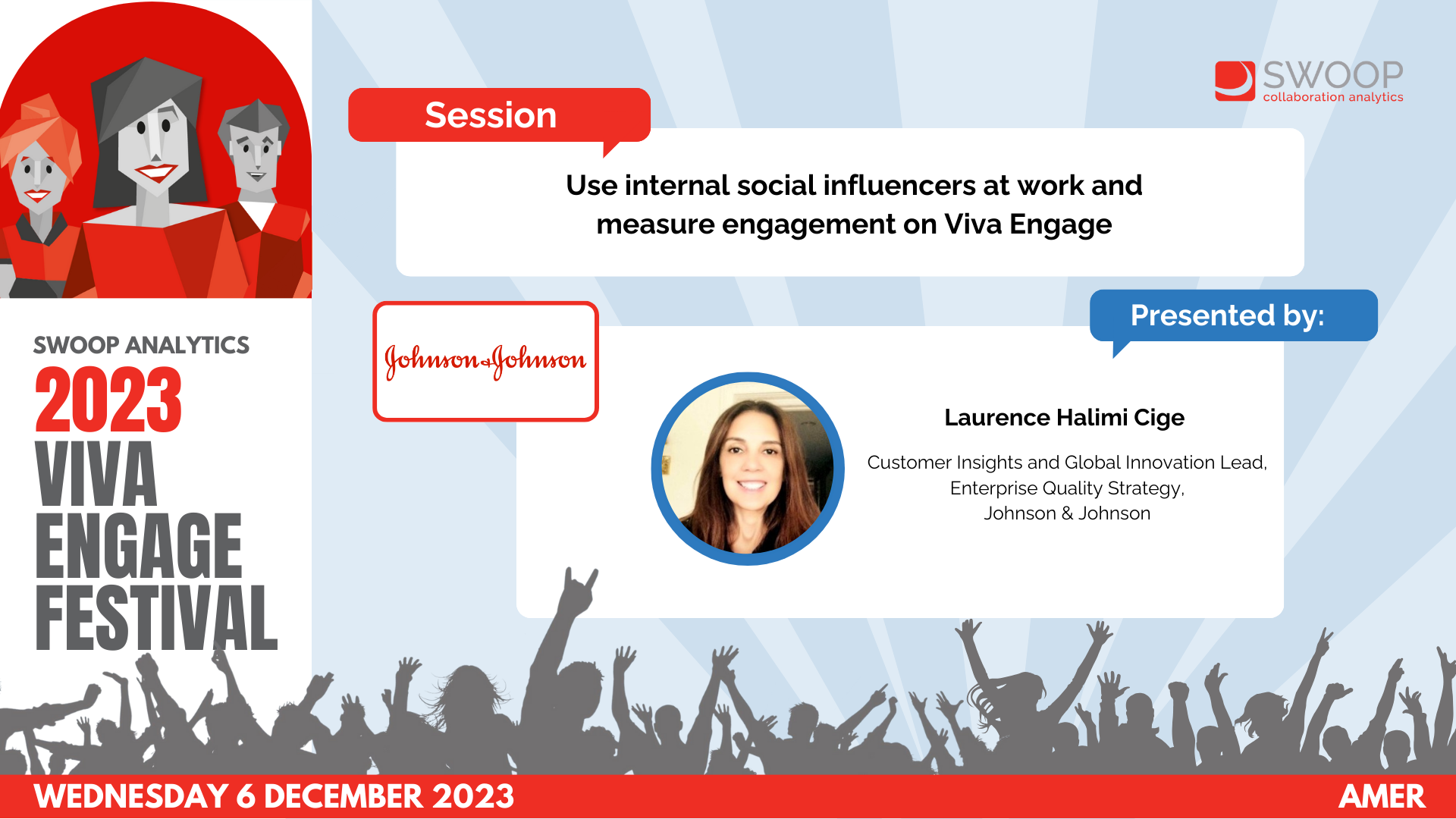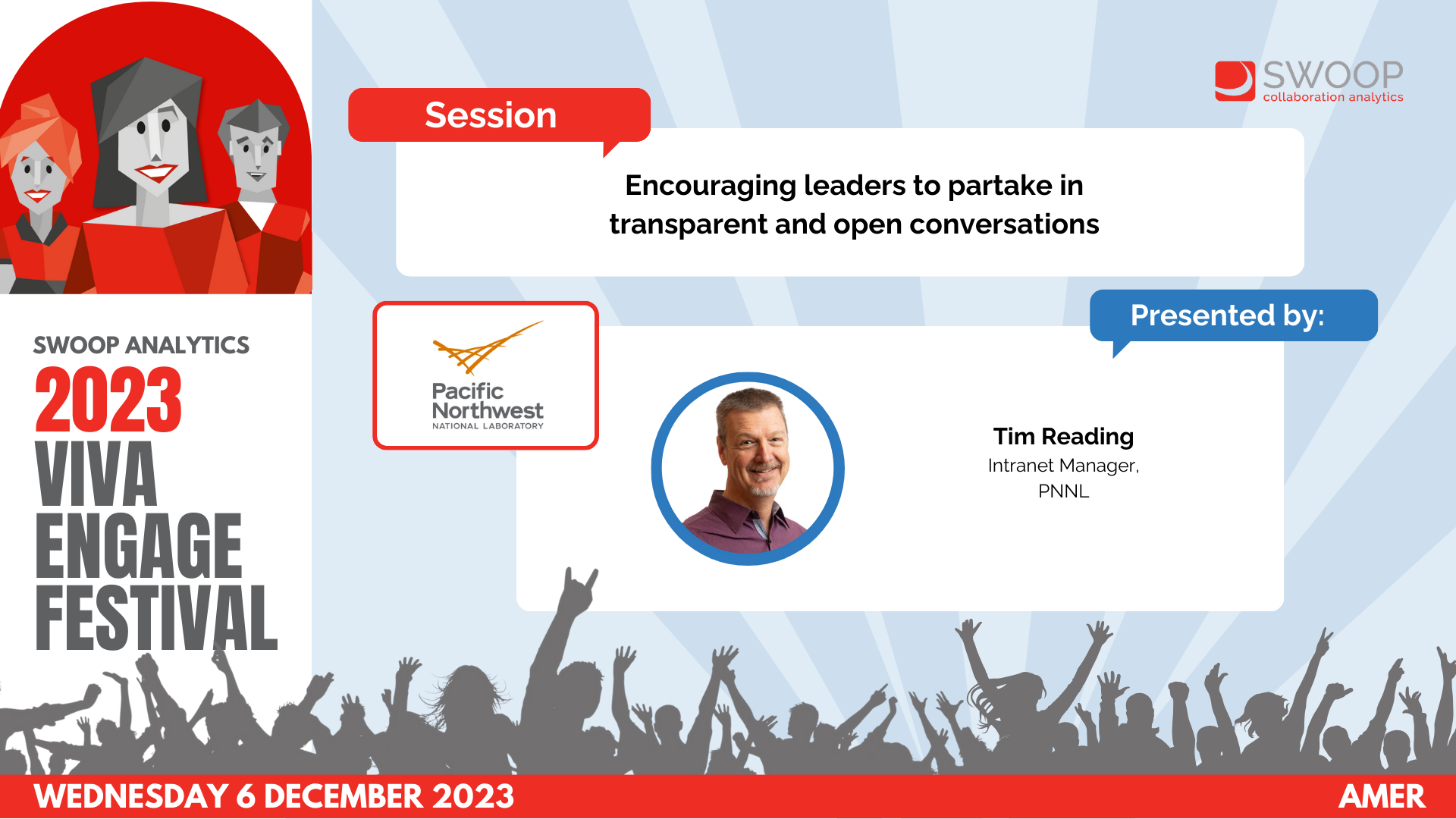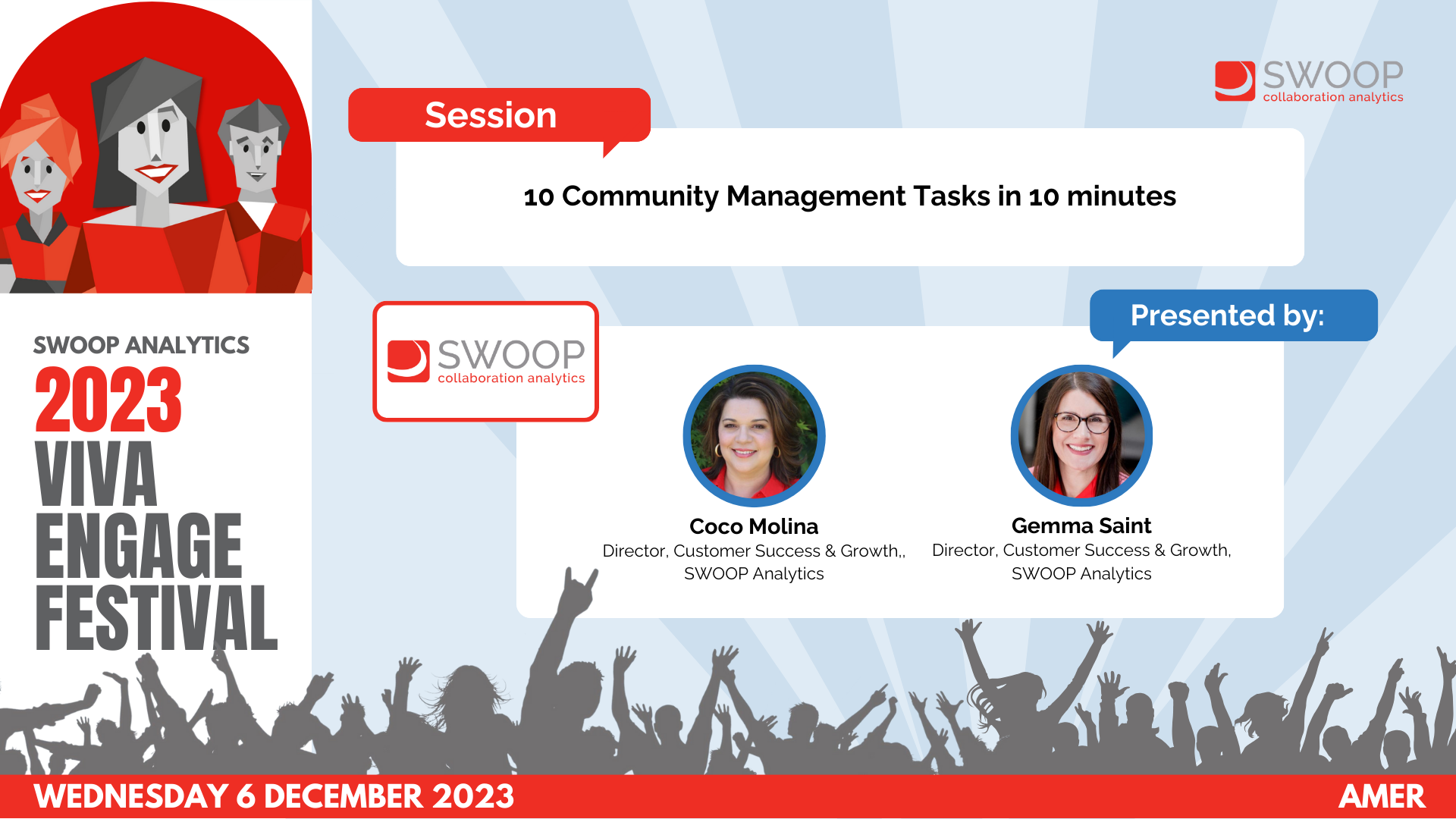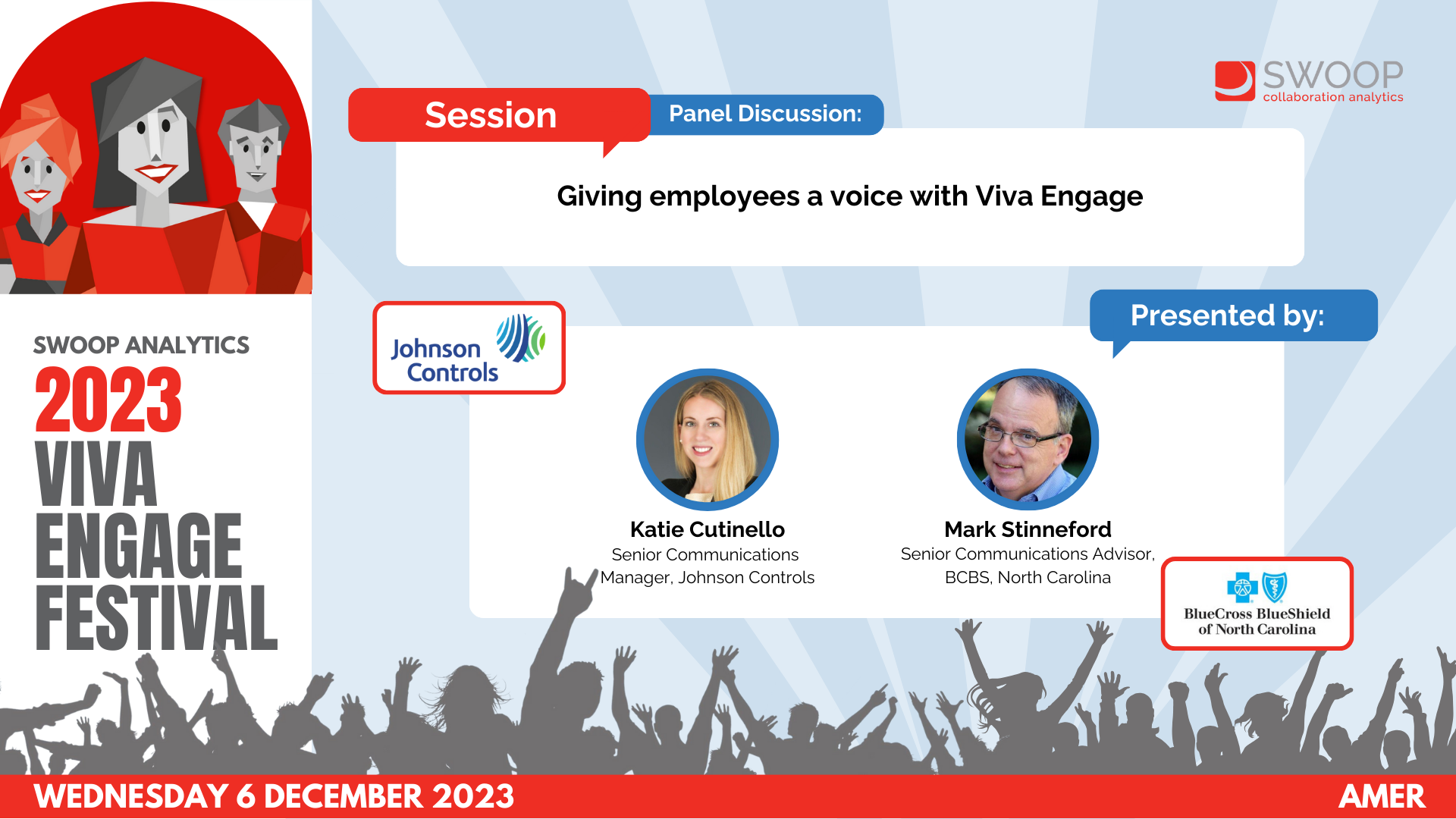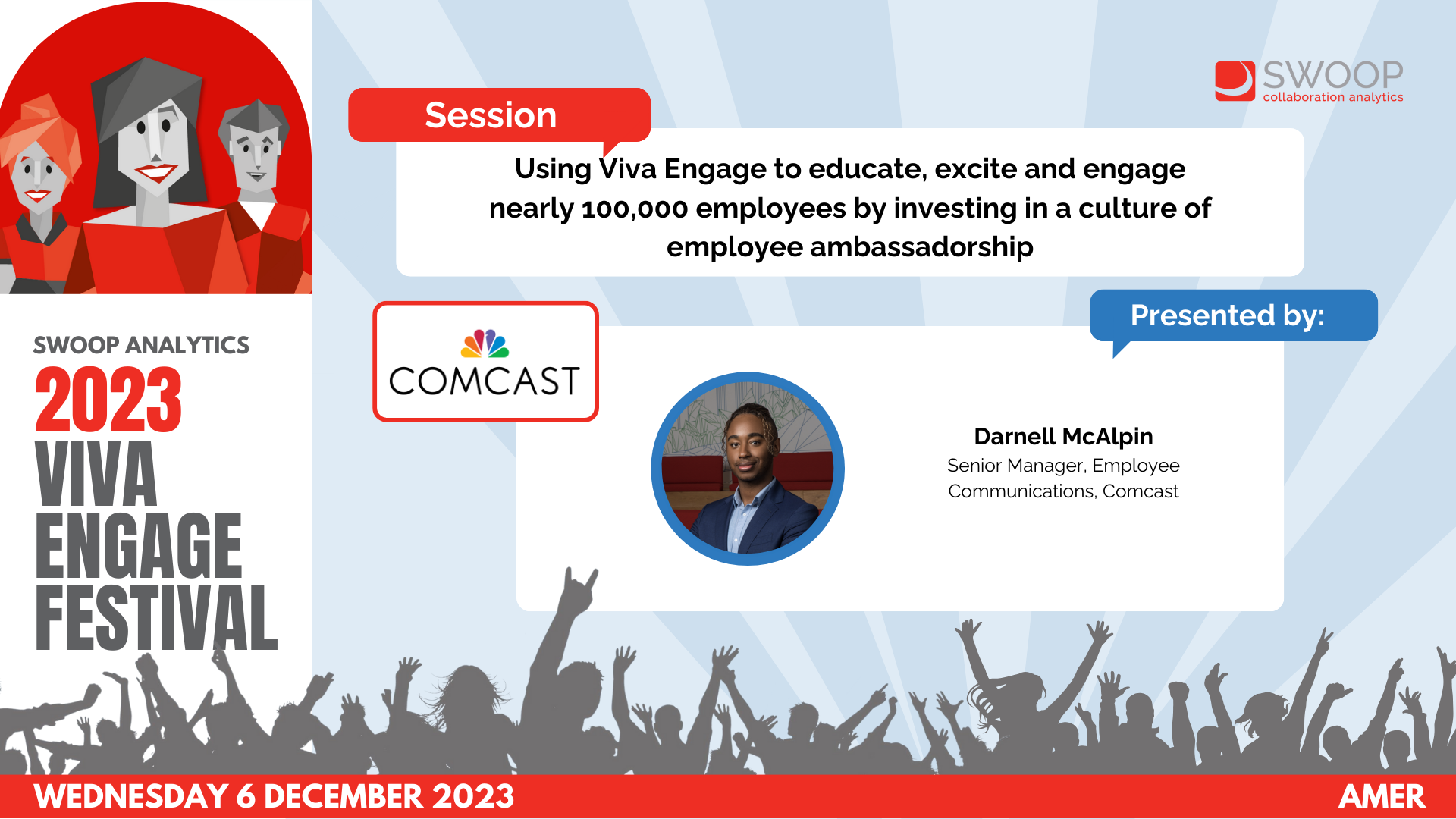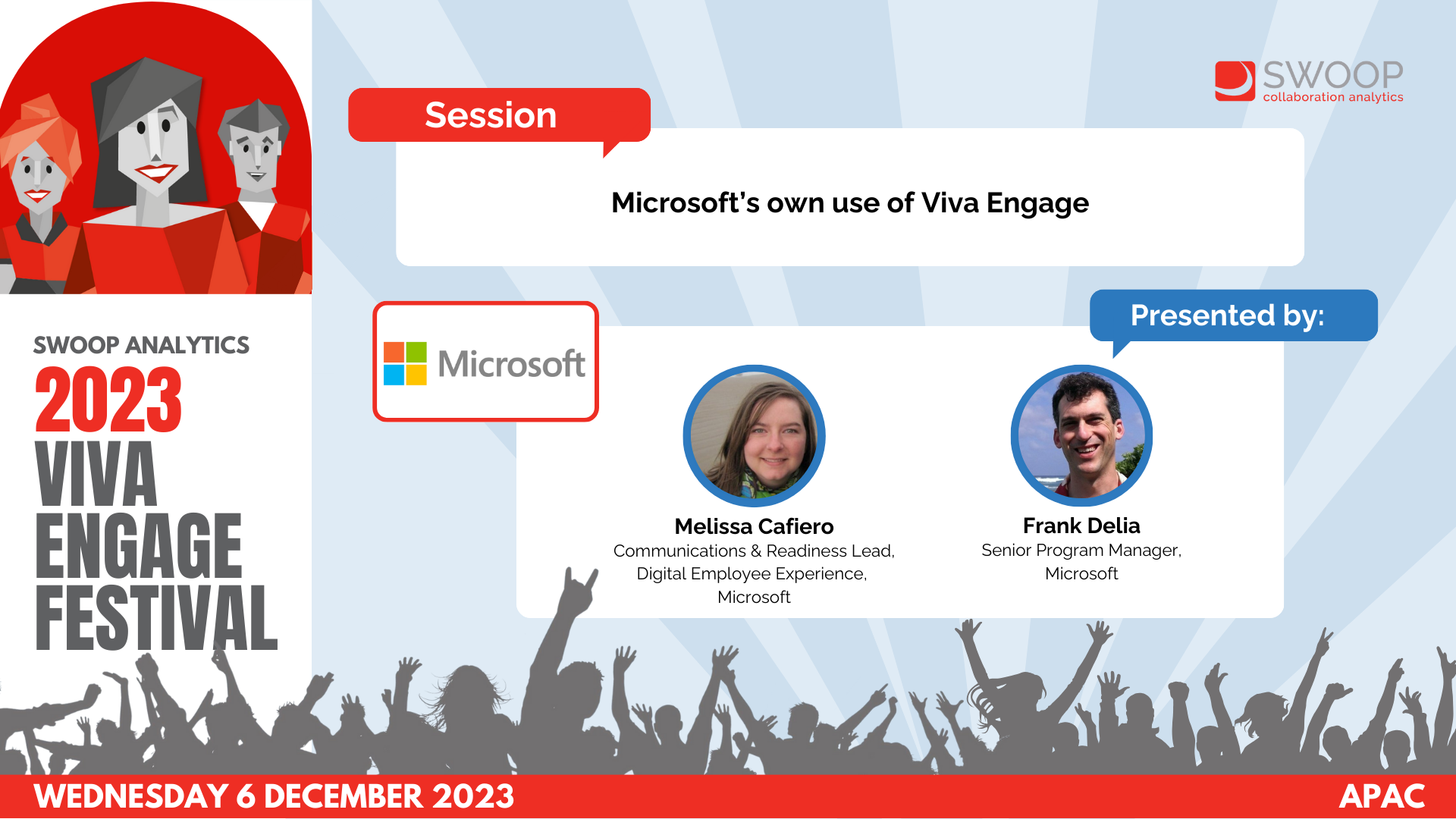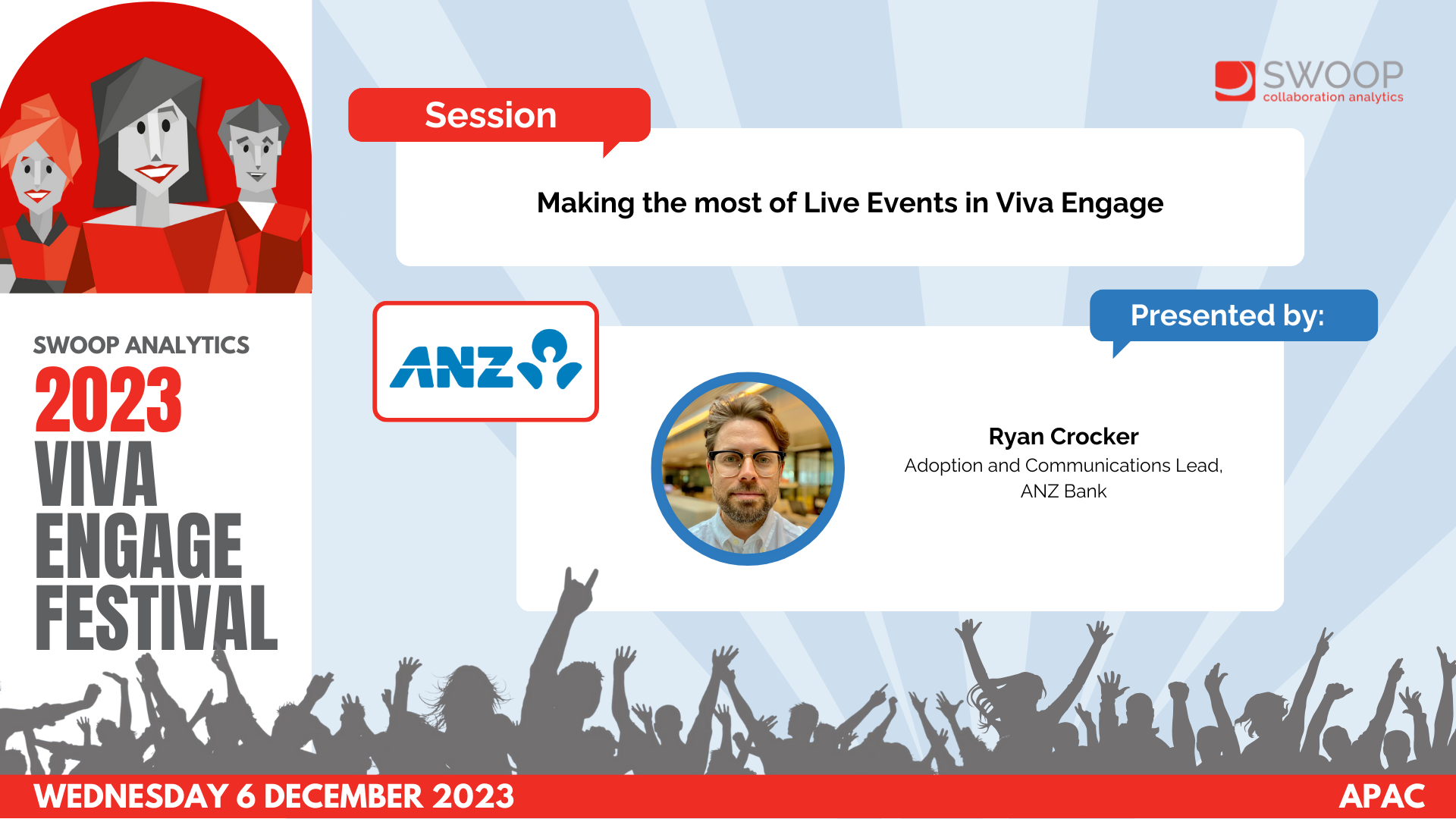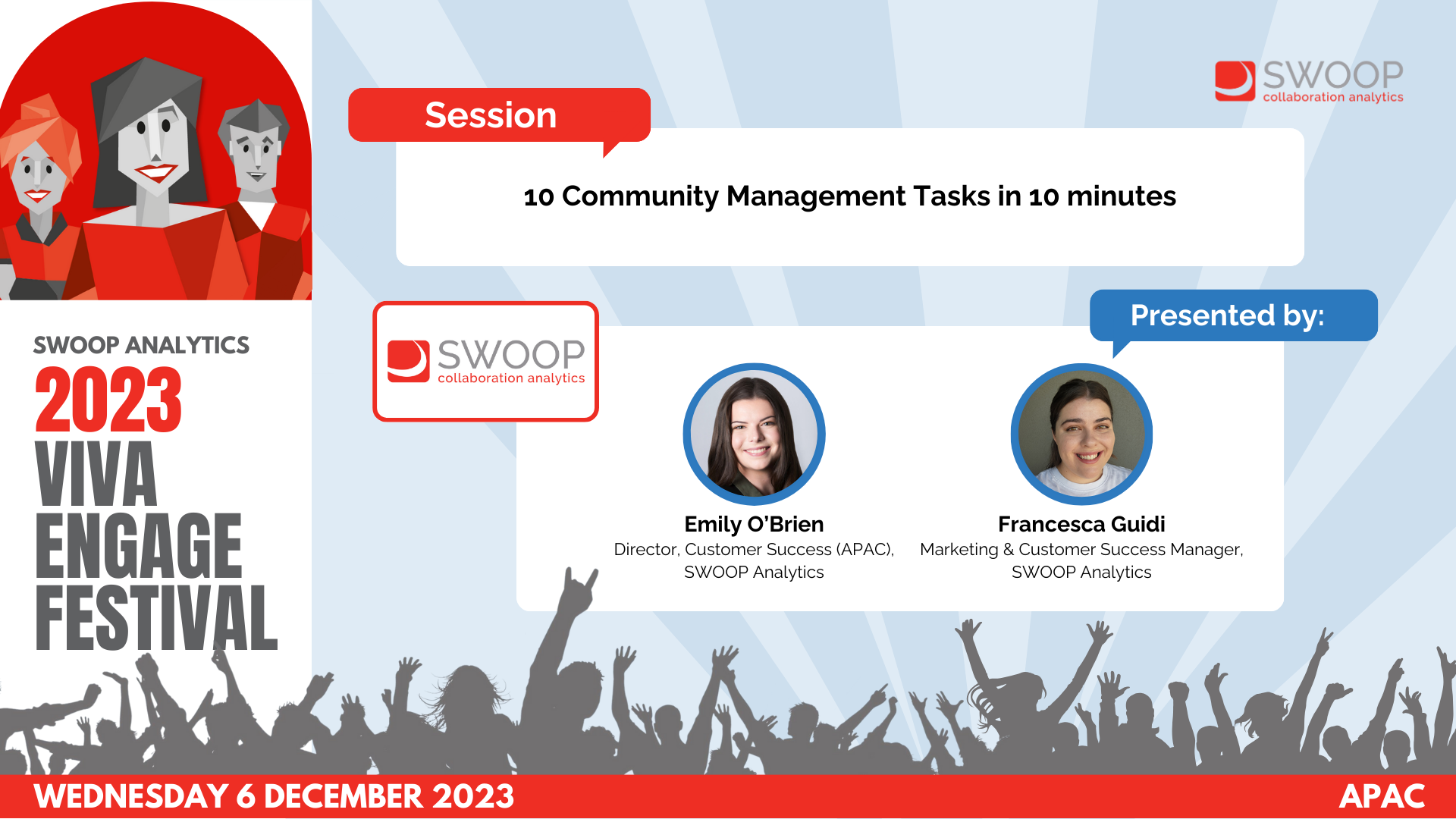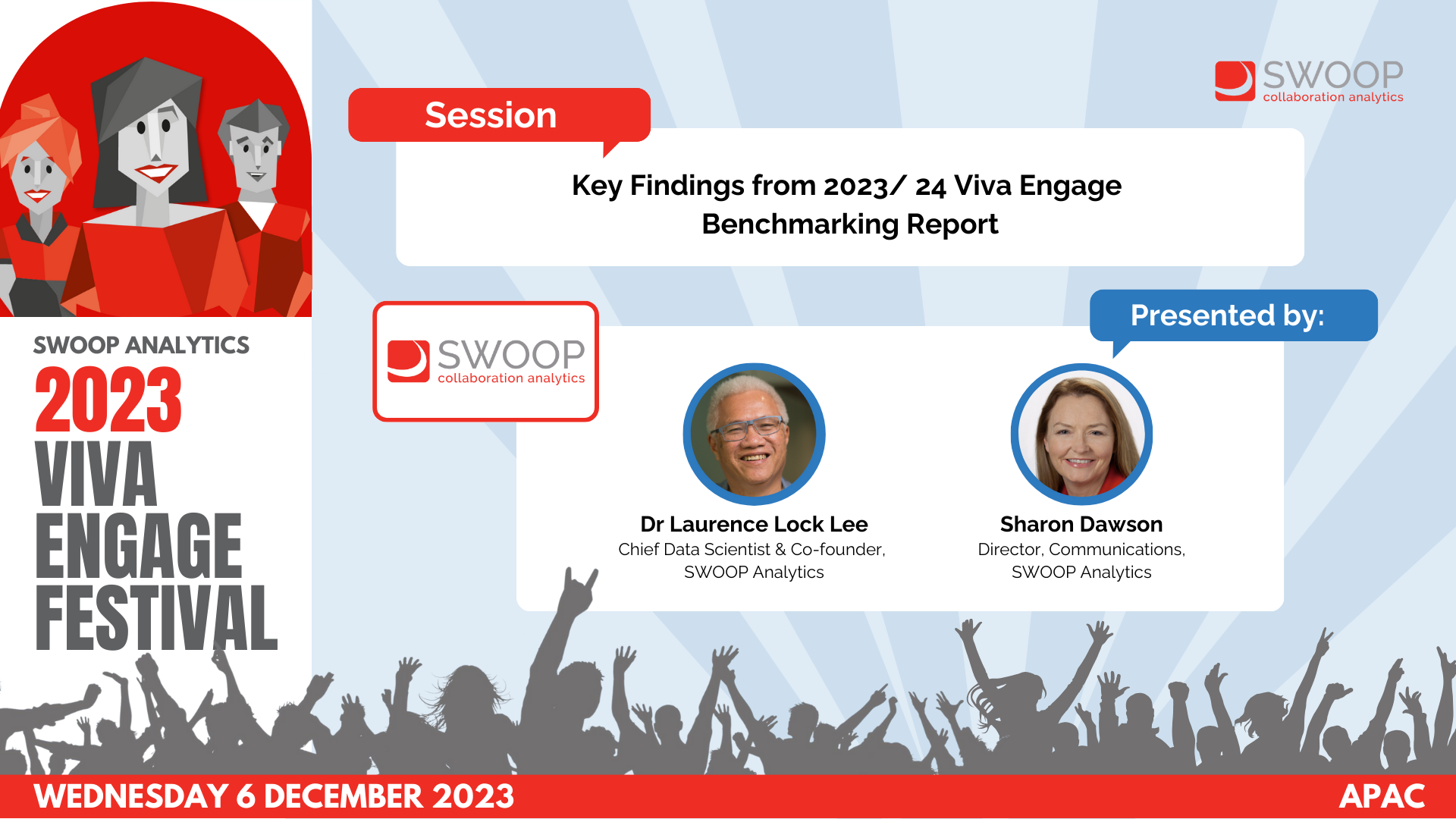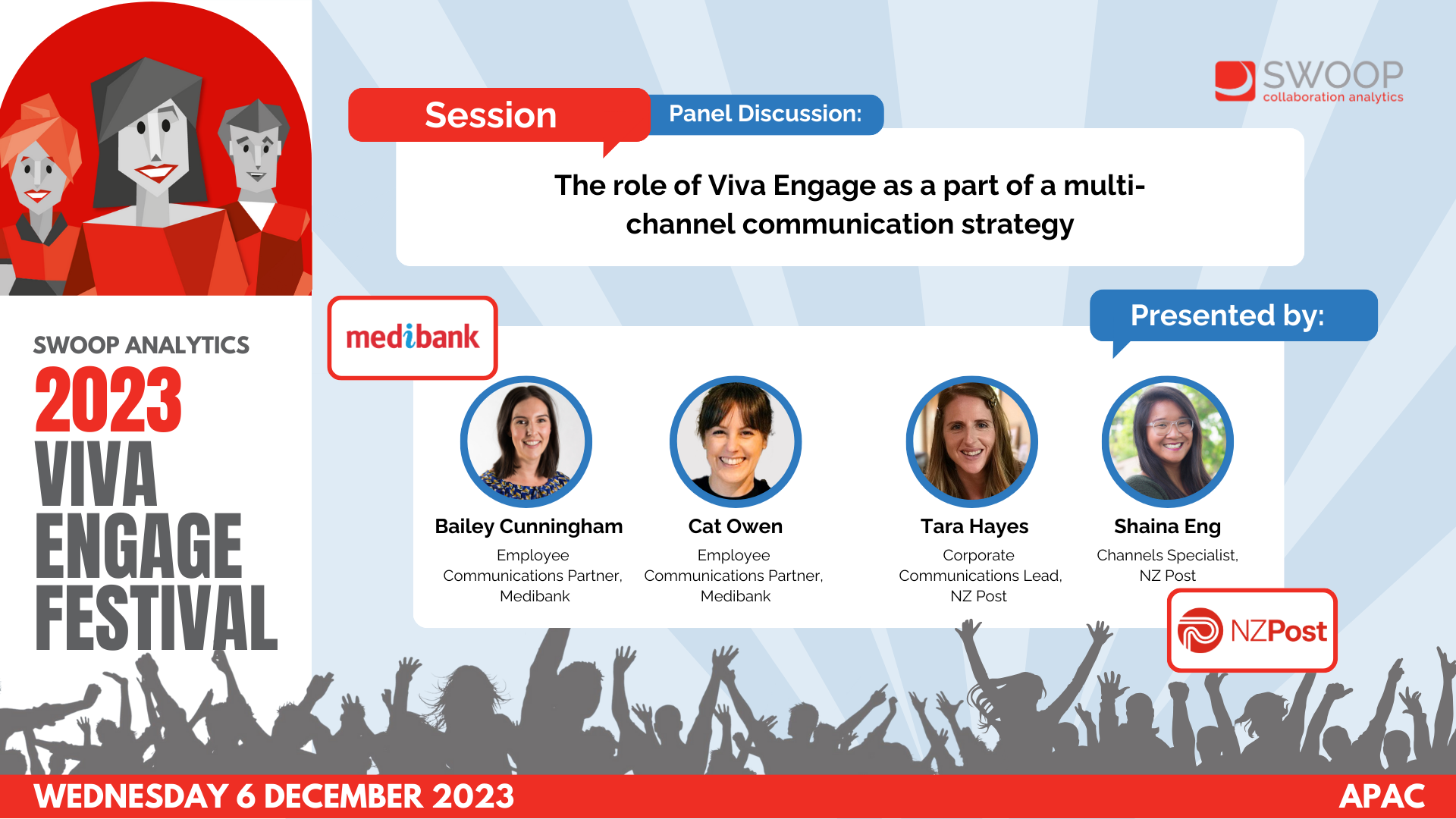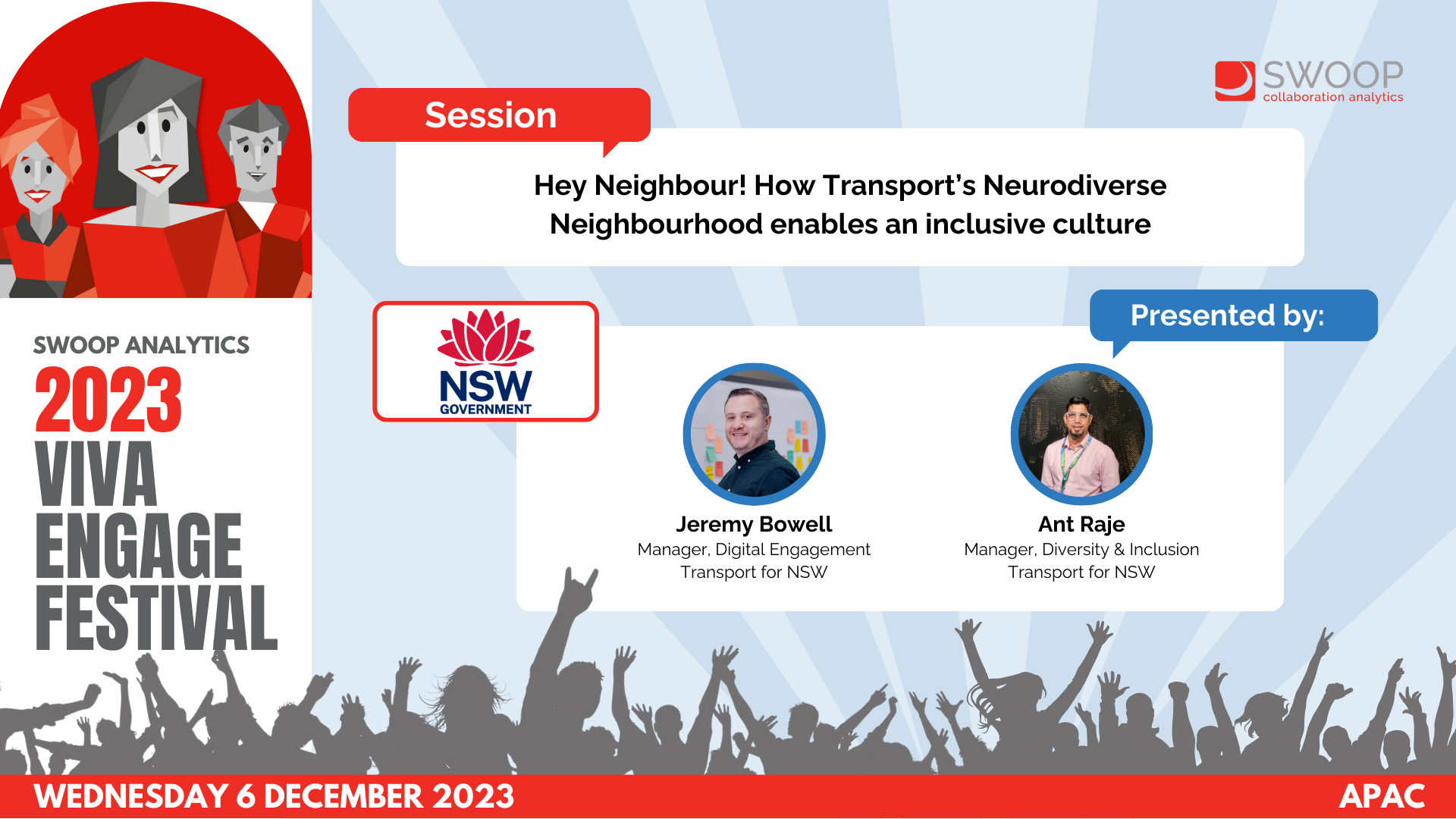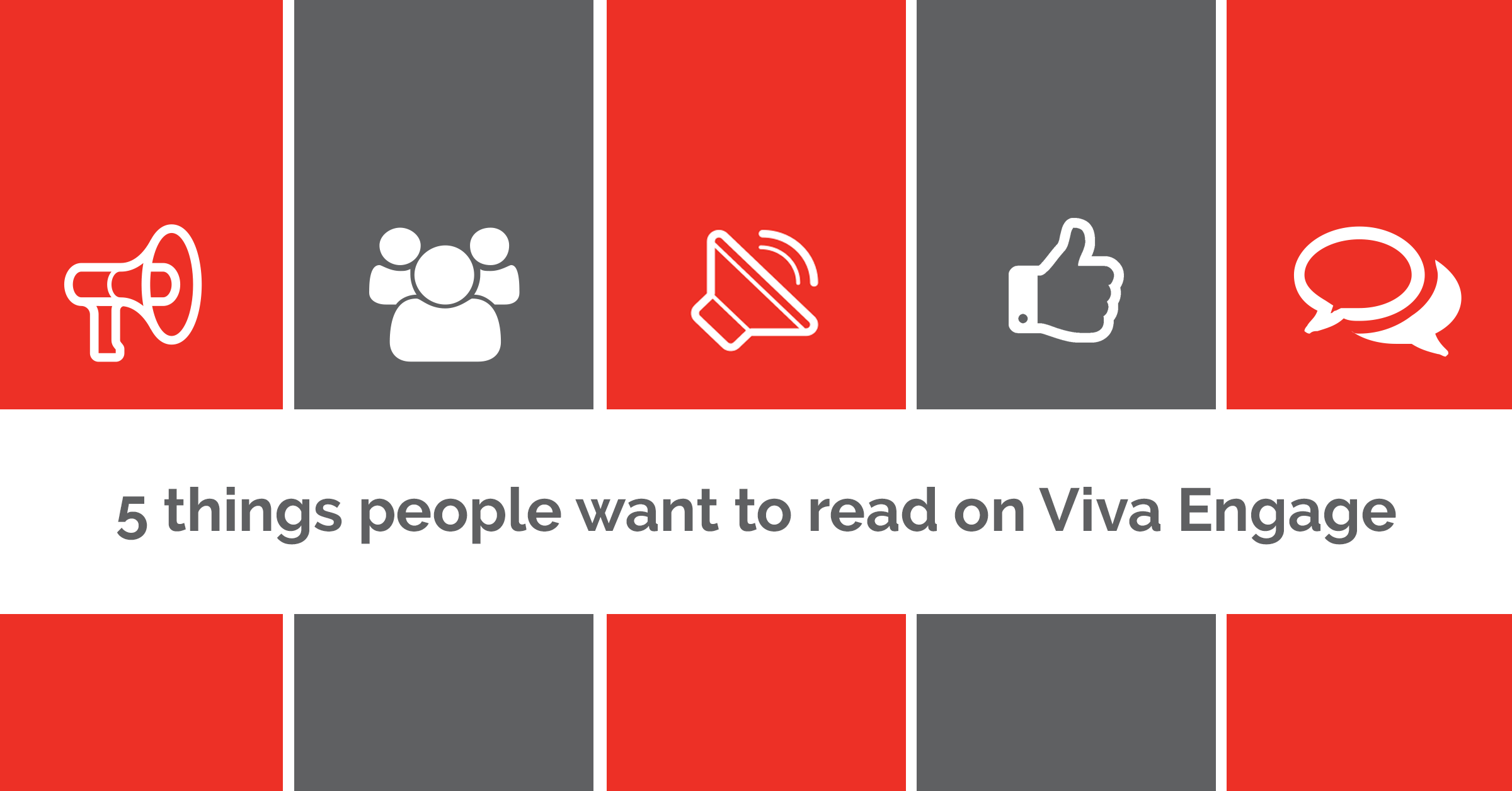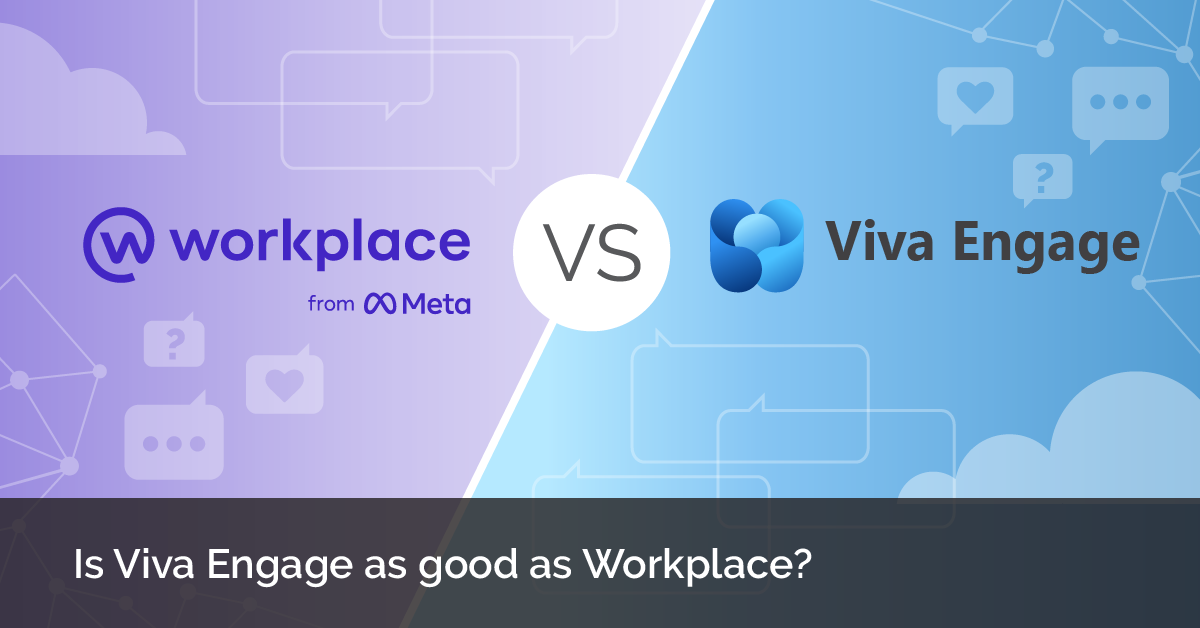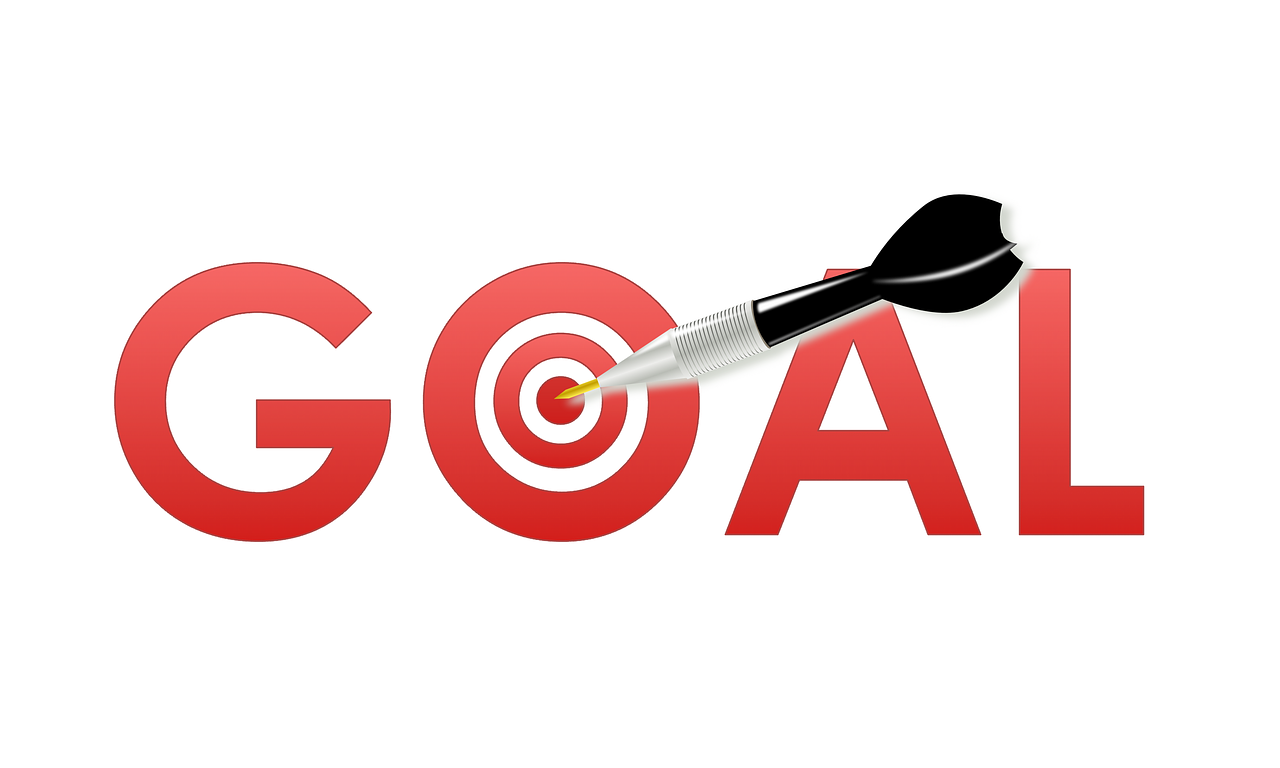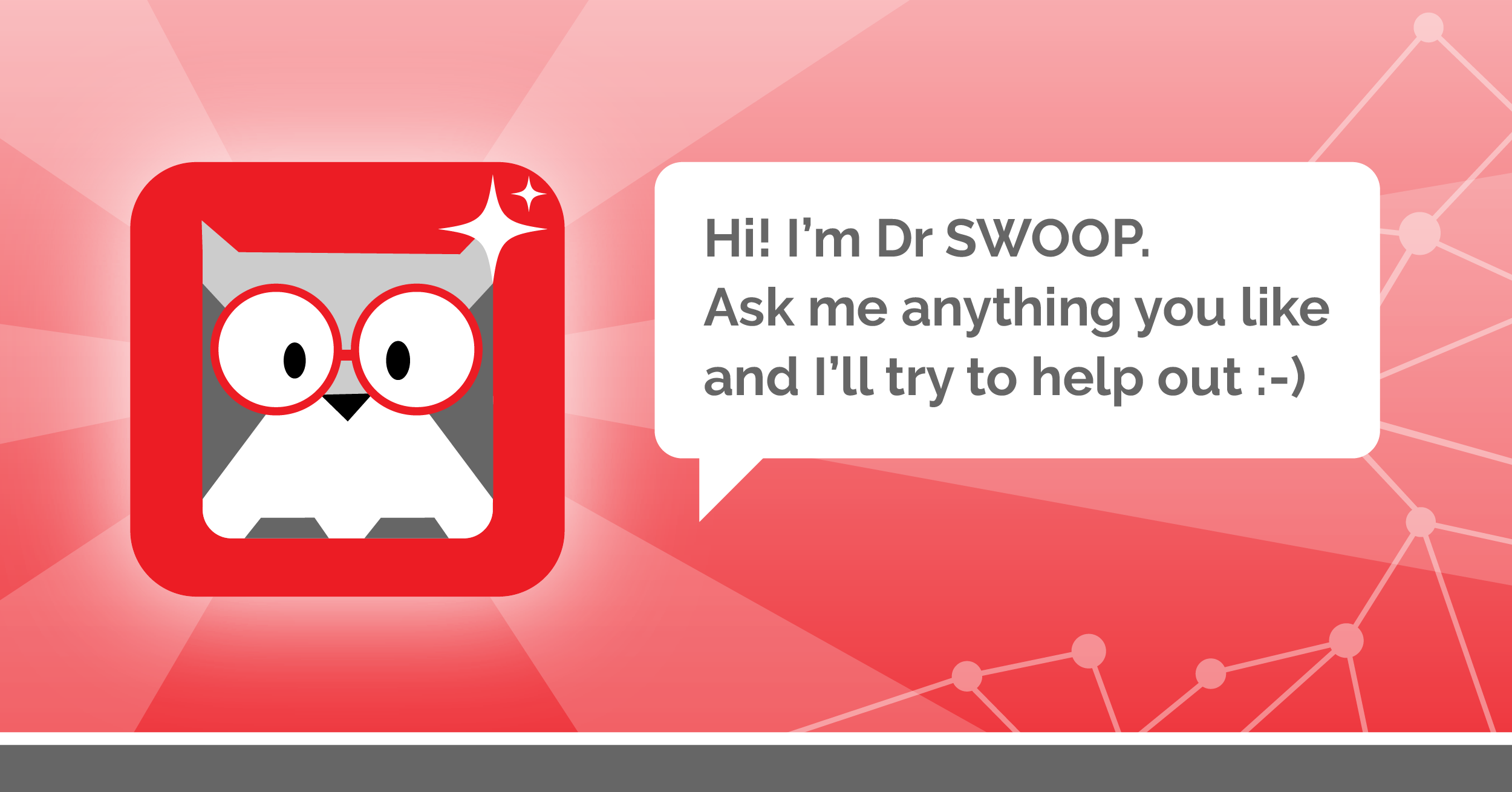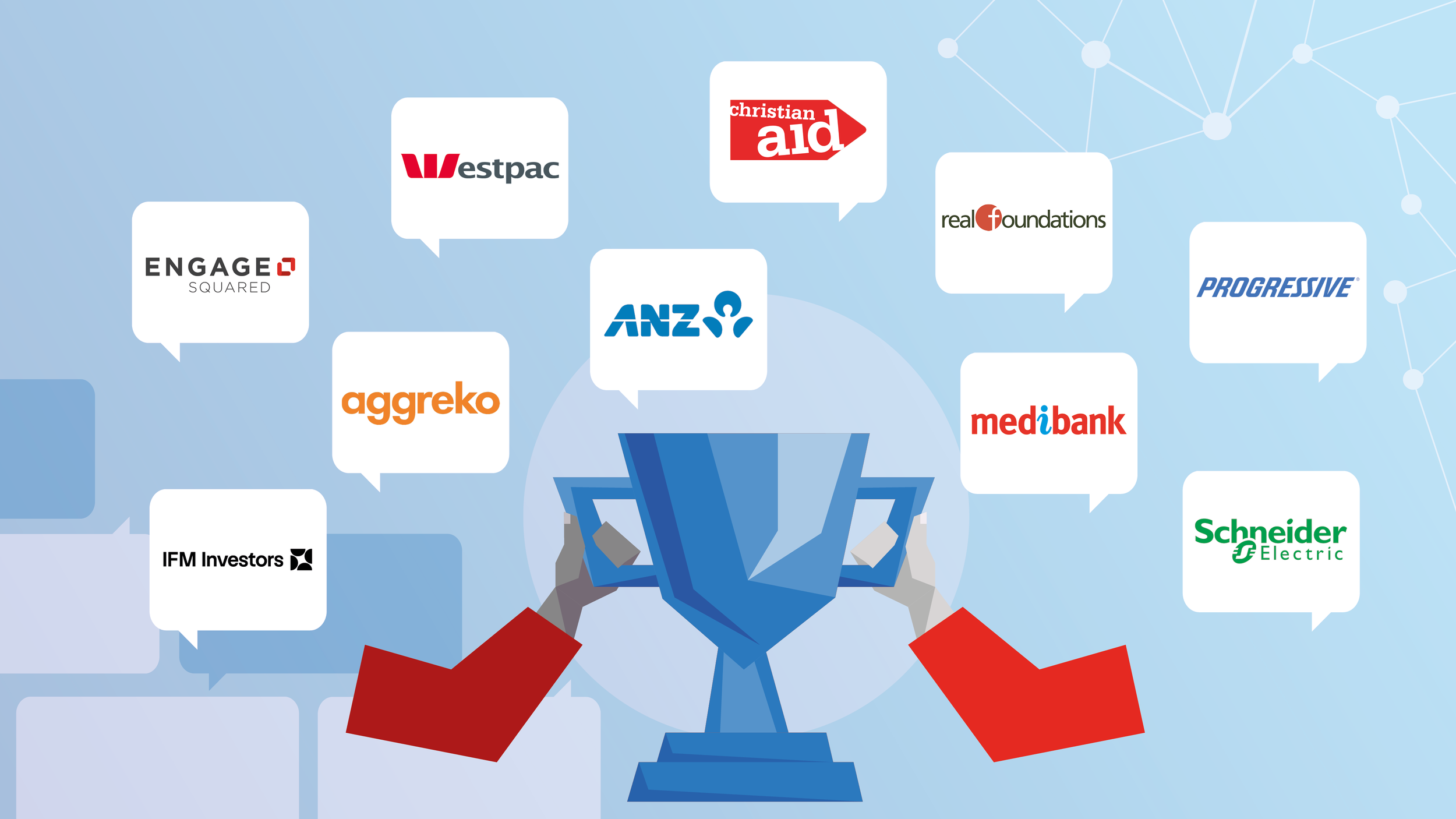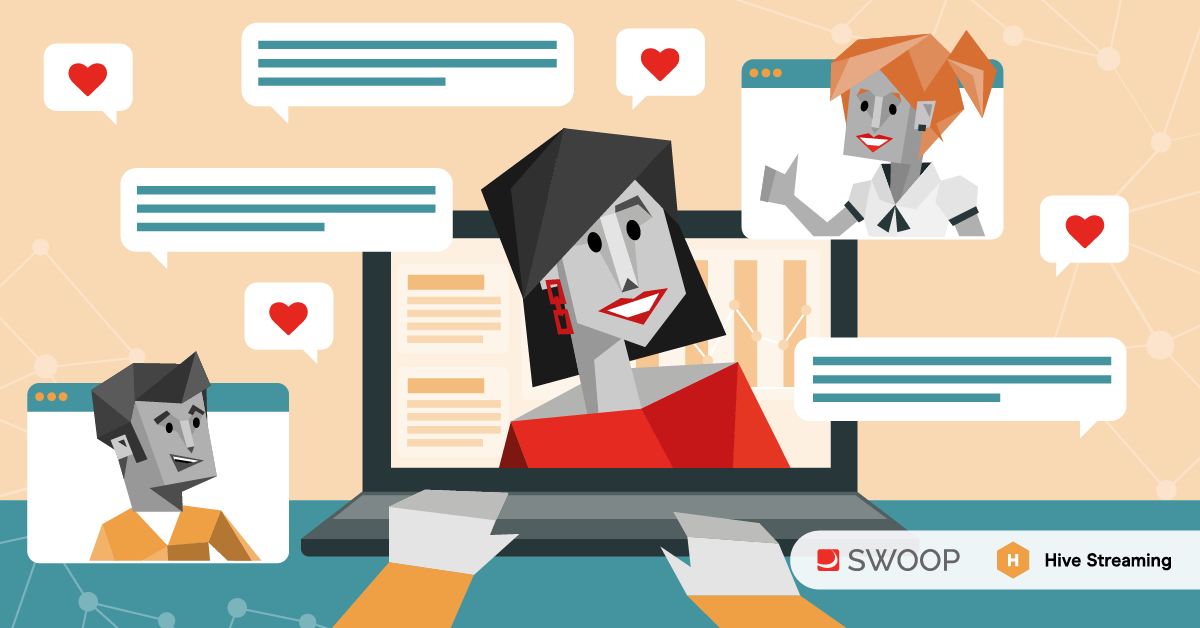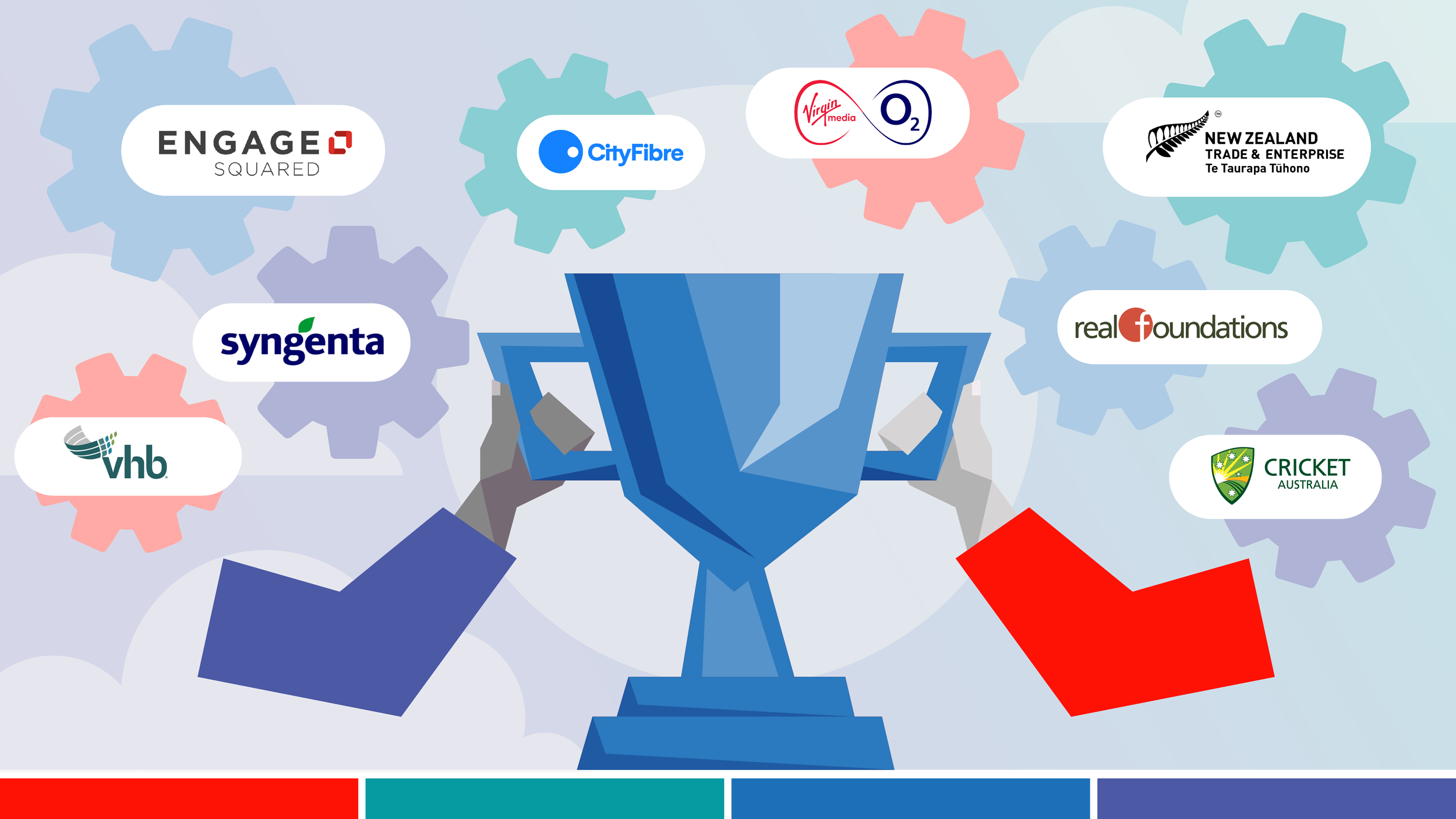Vestas: Creating the safe space for conversation to flourish
EMEA | Viva Engage Festival 2023
Freja from Vestas will share how they are working to make Viva Engage a safe space where people can share openly and honestly, building stronger connections and communicating more effectively.
-
Yeah, thanks for inviting me. My name is Freya. I work for Vestas, where I am the head of internal communication channels.
So I work with a lot of, with our intranet and Viva Engage and our smaller channels like InfoScreens and newsletters. Yeah, and I'm here today to talk about our journey in creating a safe space for conversation to flourish on Viva Engage in particular, but also in our comments sections on news, for example. Yeah.
So just a quick introduction to our company, because it's important to know when we're talking about the audience here. So we are approximately 30,000 employees in 80 countries across the world. So it's quite a diverse group.
We have about a third of our employees in production facilities, a third in service in the field, which means they are driving every day. They are up in the turbines. Some of them are offshore, so they live two weeks at a time on a boat.
And then we have one third in office work. Yeah. And as I said, it's all across the world.
We have a service in most places. Then we have of course sales. We have some research facilities and then we have our global headquarters in this slide.
We are present in most of the world, but Russia is grayed out. And that is because we had some business there up until 2022. This is a point for later, because we had some moderation to do on that topic in Viva Engage.
Yeah. And I just brought some pictures here for you to get a sense of the diverse work that we do in this company. So as I said, we have people out in the field, out offshore.
We have people who just do transportation of blades, as you can see here and on ourselves. We have people who work in warehouses. We have the office, of course, we have production facilities.
We have assembly locations where offshore turbines, they are moved there and then assembled partly before then taken on a ship offshore. Yeah. And then we have parts and repair.
So why are we on Viva Engage? We are on Viva Engage to strengthen our communication towards all employees. I think as it is for most production companies, we have a challenge reaching everyone who's not in an office because they don't necessarily go to the internet every day to see news. So we wanted a platform where they can come and talk to each other as well and get best practice help, because some of our service technicians, especially, they can be very alone out in the field.
Some of them just work one at a time some days, but usually they have a small team and can be quite disconnected from the rest of the company. And so we also realized that we actually don't have one channel to reach everyone, which is a problem. And it was especially apparent during Corona.
And we can see from our employee satisfaction survey that especially in service, we have an issue with people feeling disconnected. Yeah. So we have these principles.
We want to go from isolated to connected, from a job to a community, and from individuals to a sense of belonging. So that's the headline of why we are rolling out Viva Engage. And we're still in the middle of it, so I don't have all the answers.
But this is how far we've come and the thoughts we've thought about it. Yeah. Then, of course, there are some potential risks.
And I think the most important one and the one you hear the most is it's a place where everyone can communicate. So we will also probably hear from some critical voices. And do we want to hear all the critical voices? But our answer is, of course, that they're going to be critical anyway.
So we might as well have them be critical in a way, in a place where we can then have a dialogue, where we can know what it's about and then facilitate. Yeah, that maybe we can do something about that. And we have a lot of safety guidelines, and we have a lot of IPR and patents.
So we have a lot of restrictions on photos. And I have had legal in my inbox going like, can we just remove upload of pictures to Viva Engage? To which I said, no, we cannot. But I will try to make some good guidelines.
Yeah. Because what's the point if we can't upload pictures, right? So how do we minimize the risks then? Of course, we've created guidelines. So we've created internal social media guidelines, we call them.
They are for all employees to know exactly what we expect of them in the platforms and what the platforms are meant for, because it's not necessarily meant for everything. And then I have created moderation guidelines. So we can have moderators that can help our colleagues then follow the internal social media guidelines.
Then we delegate responsibility and train, because I can, of course, not as sole person, keep track of 30,000 people. So we are appointing regional anchors and community moderators, and we're training them. And we're in the middle of that process.
And then we are going to train all people leaders in service. We have started in Latam. And then we're going to make training available for all employees who want it.
And I brought a little snippet here. Maybe it's a little small, but I think you will get the slides afterwards. But basically, we have two kinds of training for everyone.
So it's just like a platform training. How do you find Viva Engage? What do you do? How do you make a post? How do you make a poll? Yeah, you can like and mention people. And then there's some communication training about how should you communicate in a good way, trying to understand the audience.
That's a lot of what often goes wrong, is maybe you're communicating somewhere where you haven't fully understood who the audience is. Then we have communication and moderator training for the community managers. And we have communication and leadership training for leadership.
And then we have an analytics training that's not done yet. But that's going to be for everyone interested, especially community managers. Yeah.
So our moderation principles. We've already seen some issues where we've had to step in and correct some behavior. And these are our guidelines.
So always be polite. That's very important. We always answer in a calm and respectful and kind manner.
We explain and give examples. We remember that we are all colleagues, because that is basically the point. We should all feel good about coming here.
But of course, we also have to be firm. So we do set clear boundaries when we see something that is not okay. And we point to official policies and guidelines to substantiate.
Usually I have a second slide that I haven't brought today, because it's mainly links to our code of conduct, to our social media guideline, to other documents that holds some good text for linking to if you have to moderate something. Then you can go, well, it says so in our code of conduct here that we behave in this way. So it's always good to be able to substantiate.
Then we assume good intentions. Many comments need interpretation. And I have some examples of comments where I've needed to interpret.
And then we always assume good intentions. So I never go into a discussion with thinking people mean bad in any way. But sometimes they need maybe to correct their word use to be able to get their sentiment across in the best way.
So if something is not clear, we ask questions. Things can get lost in translation. And we see that especially in a global company with as many different backgrounds as we have here.
We have language barriers and cultural differences. And they are playing a role. One example that I didn't bring in the next slide is we have a very active compliance community in India.
And they love making memes. And they're all made up of Indian movies that a lot of us outside of India, we don't know. And sometimes they are like, depending on how you look at them, you're actually not sure whether they are meant to be like sexual harassment is a bad thing or a good thing.
Because we just don't understand the reference. But here I always go into it. Like I assume since it is put up in a compliance community that of course they mean harassment is a bad thing.
But I love that community personally. It's many great memes. Always be constructive.
So we never go in and just say like you can't do this. It's like we always then give an answer. So what would we prefer that you do instead? If you have an opinion, of course, you should be able to voice it.
But maybe you need to then explain it more or use different words. And then we avoid deleting. We want to foster open dialogue and psychological safety for all.
So it's best to take the dialogue in the open and set a good example. Deleting is a big topic that we've talked a lot about. And I will come back to it because we did actually delete some stuff.
And there was a huge discussion around it. And afterwards we've decided we will as much as we can avoid deleting. Yeah.
And then I just love this Michelle Obama quote. So it got in there. When they go low, we go high.
That's my mantra. So yeah. So that brings us to our internal social media guidelines.
And as any communicator, I wanted those to be very short and precise and easy to just like here are five steps. Good. But in reality that didn't happen.
It started short. And I had discussions with legal, with our DIB team, and then they kind of grew. But I will get into it.
So first of all, it starts like this. Welcome to Viva Engage. Our goal is to provide a dialogue based collaborative environment.
So a setting like this is what it's for. We want to foster professional communities across locations. Then we have seven house rules.
The first one is safety. Because we are a production company, safety is always our first rule. We start all meetings with a safety moment.
It's a big thing for us. So it's of course the first rule here. We want to have both psychological and physical safety.
Yeah. So think about how you talk. And if you upload pictures, don't have pictures that show something that is against our safety guidelines.
That was actually the example. We saw some pictures where a legal contacted me and said, can we not have people upload? Yeah. Because there was some issues there.
Then we have add to profile. So this is one like, please put a picture because it's just nicer when we can see each other in here and we can have a nice dialogue with the face-to-face in a way. And then I have this add value, not noise.
So take an active role, add value, which each post, join conversations and groups, share and like good content, keep messages brief. And to the point, think about the audience. Do not repeat the same message in many communities.
As the audience changes, so should your message. And this is a really important one. So the screenshot I have here, I don't know if you can read all of it, but during the summer we had a strike in Germany and they were of course very passionate about that, which is totally fine.
But they were posting 25 posts a day in our all company feed in German, linking to German media. And I had a lot of conversations with those colleagues about the all company feed is not the correct place for these posts. And I started moving them to an NCE community instead.
And the snippet I took here was some guy who was annoyed about that. And he wrote a long letter to a leadership actually, and he posted it in all German. And so I just corrected him.
I was like, please speak English. I'm not sure. He cannot answer that.
I'm the one who's moving this. So you can just take it with me. And then he said, yeah, but I thought we could write in local language.
And I said, you definitely can. But I would recommend not to do that in the all company feed. So if you want to write in German, I would prefer that you do it in the German community.
And then the last point I have here, which was basically what I was trying to explain to them. Just because you find something relevant to communicate doesn't mean that it's interesting for the audience. And they just have to understand that a strike in Germany is never going to make sense in Mexico.
They don't know your labor laws. They don't know. They never at any point actually explained what the strike was about.
So it was just like noise. And then I said, the bigger the audience, the smaller the amount of relevant topics. And that is very important.
So we don't want just 10 people shouting and ruining it for everyone else. But they were very nice. I think I made some good friends in Germany and they finally understood.
And they stopped. And the strike is over. So everything is good.
And then we have a fourth one here, which is very long. I tried my best to keep it short. Help protect our information.
What happens on Viva Engage stays on Viva Engage. Do not share outside our company. Guard our data privacy and sensitive information.
Consider thoroughly what is appropriate to share in Viva Engage, especially when it comes to images. And this is because we do have a lot of IPR and patents. And we have, as you can see at the bottom here, governance for photography and recordings at Vistas.
And I think it's 20 pages long. And I had a lot of talks with legal about, can we just say very simply, don't take pictures inside factories, inside the cells and towers on our construction sites. And they were like, no, because there are some instances where you are allowed.
And it's all explained in this very long document. And I just said, I'm never going to get people to read that. So now I'm going to just write that you can't do this.
And that if you really want to take a picture inside a factory, then you can read the 20 pages. So that's how it is. And then what I inserted here as a snippet is a guy who uploaded some pictures from his work, which is great.
We have a lot of beautiful turbine pictures on Viva Engage and I love it. But sometimes they take a picture of something that's not so great. And then now, because we have SharePoint backend, I just go into the SharePoint site, find side assets, find the post.
And then I can just delete the one picture that is the problem. And that is why you see a gray box here. Because I deleted one of his pictures instead of the whole post.
And then I just wrote to him like, hi, thanks for sharing. It's great. Just want to let you know that this one picture was the problem.
So I have deleted it. And then we have three more. These are the last three.
So, of course, we want to collaborate. Feel free to create groups and share with colleagues. It's great.
Please try to write in English. Otherwise, we can translate. Be polite and keep it professional.
You are personally responsible for the content you post to our communities. It is acceptable to disagree. We all have different opinions, but please do so in a respectful manner.
Be sensible and polite and aim to be constructive. And this is important to have in there, because I think this is what people sometimes... It's like sometimes you see on Facebook or other big social media that people get very angry and they write something. And then sometimes it happens internally as well.
And here it's our job to just say, but we are all colleagues here. So in a way, we are all in it together. So don't start off being negative.
Try to be constructive. And the picture I have here is a post from a Russian colleague who posted this in July last year. And it basically just says like, hey, it was a great day with the Russian service team.
I'm happy to be working. And then a picture of the team. And then a guy wrote this like a year after.
He's writing, is there no one moderating this? Why was this allowed to be posted in July of 2022? And basically, I'm just going in and saying, well, we're all colleagues here. And I do understand that the Russia-Ukraine, it's a Ukrainian colleague who wrote this, that it's a sensitive topic at the moment. And as long as you're an employee, you're welcome.
I don't see any references to the war. And I mean, we're not going to moderate on, you know, just because you have a nationality. And then we had a great talk and he was like, oh, I see that actually makes a lot of sense.
But there's also another comment here that might be an issue. And that was. And then I reached out to a manager and he wrote something and it was chosen in a good way.
I think he also reached out. So we also see this once in a while. And that's also why when it gets difficult, because some of these topics are very emotional for people.
So the strike is, of course, emotional for the people in it. And here we're talking about a war in your country. So I also totally understand that that might not be nice to look at.
And then it's just my job to to address it in a good manner. And then we have the last one here. Be open and assume good intentions.
And we used to have in our guidelines, I think a sentence that said we don't talk about politics, religion or sex because we are not going to agree anyway. But because we also started to work a lot more with the IP and and rolling it out globally, we're having a lot of inclusive leadership training for all employees. First, we had all the managers and now it's rolling out to all employees.
We actually do want to make a place where we can have some dialogues around some of these topics. And so we decided to take it out and we wrote this instead. So let's avoid making judgments or assumptions when in doubt, ask thoughtful questions.
If a post or comment upsets you, ask and seek clarification rather than responding in a harsh tone. By asking questions and being active listeners, we encourage exchange of ideas and promote open dialogue. And this is also in line with our training.
So we have psychological safety training actually as part of our communication in teams. And we have this about active listening in our inclusive leadership training. So that's why it's here.
And yeah, you're all giving thumbs up. It sounds great. But we did have some bad examples in some of our... This is not actually from Viva Engage.
This is from some news that we had about CEIB. So about Pride Month and about trans visibility on our internet. And so the first one is just someone saying like we have a lot of stuff about LGBT community in the US.
I was like, cool. Can you add a link? And he adds a link. And then someone wrote, is this where I can join the alphabet club? And a lot of my DIB colleagues, they were like, this is meant as a negative thing.
They are obviously like taking the piss. But I said like, I'm going to give that person the benefit of the doubt. And I'm just going to answer it like that was an actual question.
So I just wrote like, yes, this is where you can join for me. We have clubs all over the world. And then I didn't hear anymore.
And some of my DIB colleagues reached out afterwards and said, like, I think actually this was the best way to shut that down. Just don't go into it. And then we haven't had another article where it kind of took off a little bit.
Someone posted a comment like, this is brainwashing about Pride Month and something, something. And then I deleted that. I think that's what I have here.
I deleted this because it was like too harsh. And then that person actually commented again and said, like, I'm sorry, I didn't mean to offend anyone. And then elaborated actually on what was the criticism.
And it was, why are we spending so much time and money on the DIB agenda as a company when we're struggling a little bit? Shouldn't we spend our time and effort on handling quality issues or getting sales up? Which is a fine, like, that's a fair point. And then there was a good dialogue afterwards where some colleagues were like, sure, but we also need to do the DIB thing. And they had a good dialogue.
And then another colleague came in and was like, are we deleting stuff? This is 1984 and censorship. And then so I'm answering here why I deleted it. It's like, it's not everyone who can, it's me.
I do it on the grounds of these guidelines. It was too harsh of a tone. I'm really happy with the dialogue that took place afterwards.
So it's like, I feel good about it. And then that was fine. And then another colleague wrote, leave the children alone.
And this is an example of, I'm also mindful of time, but this is an example of like a dog whistle. So it sounds pretty, how do you say, like, yeah, sure, we can all agree, like, of course we shouldn't arrest children. But it was, and so it was like, you had to read between the lines to understand that that was really, really an awful comment.
And what we did was we asked a couple of times, like, can you please elaborate on this? Like, I don't understand what this means. And then there was elaborated a little bit like, of course, I believe everyone has a right to be here, but blah, blah, blah, blah, blah. And then, and leave the children alone.
And then some colleagues started commenting, I think he means this and then referencing stuff. And it was like, yeah, it was really bad. And I was like, okay, we're going to delete this too.
And then that person got very upset. And then this is my answer. So it's like, he's asking, why did you delete it? And I'm basically saying, because I perceive that to be very hurtful.
You did not explain what you meant when we asked. And so I had to interpret. And on that interpretation, I deleted it.
I won't go into why here, because, but you can you can contact me and then we can have a talk about it. And he actually did. So we did have a talk about it over Teams, because I didn't want to repeat it in the chat.
So these are examples of me being, I think still polite, but very. But it was just, it made so much noise that we deleted stuff. So now we decided we're not going to do it.
We're going to appeal to the people to delete it themselves, maybe. So it doesn't look like it's censorship from the management. Yeah, and this is just the ending.
So if you see anything you don't like, because I can't be everywhere, then please reach out. And then that's the end. Thank you so much for a question.
Yeah. Yeah. There's there's I'm going to say there's like one minute to call out a single question.
I'm going to jump into the Q&A now, Freya, if you have time to stick around and go into the Q&A. There's a bunch of questions in there would be great if you could respond to people there. I'm going to pick on one question that caught my eye and it's around.
How do you ensure that people know your guidelines, the seven house rules? What structure do you have in place to get people to know that? Yeah, that's a good question. So, of course, it's it's in Viva Engage. There's an official usage policy, I think.
And then it and then it links in. And when you update it, you can actually say, like, prompt for everyone. So the first time they go to Viva Engage afterwards, it will open up in their face.
But otherwise, I have asked community managers to please pin it as you can pin some links in your communities. So it's obvious also as a pinned resources in our big communities. But otherwise, I just I link to it as much as I can.
Every time I write to people, I'm just like, here are the guidelines. Yeah, that is a challenge. Yeah.



